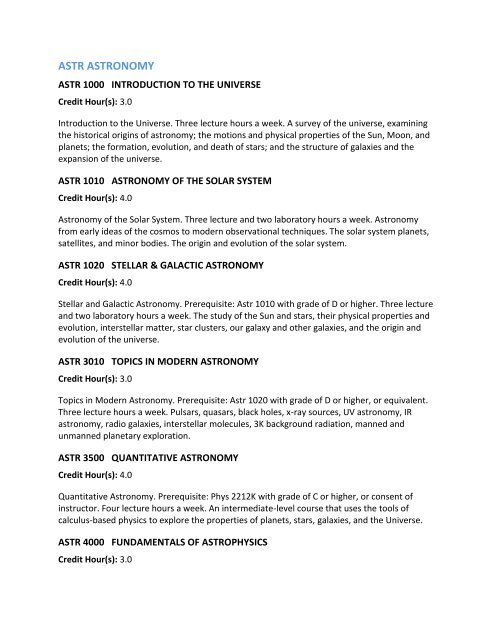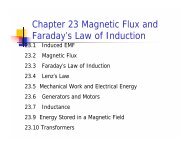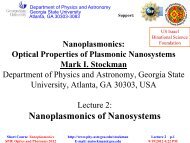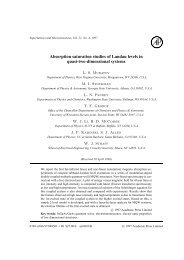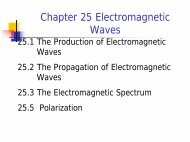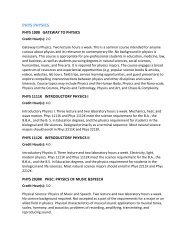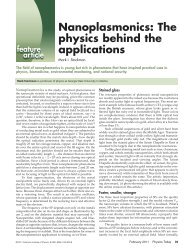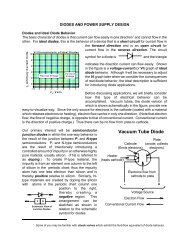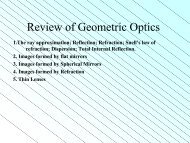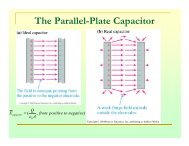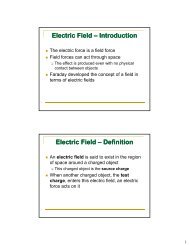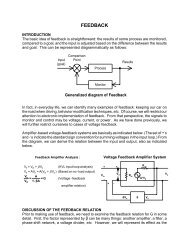Course Descriptions for Astronomy Courses - Physics & Astronomy
Course Descriptions for Astronomy Courses - Physics & Astronomy
Course Descriptions for Astronomy Courses - Physics & Astronomy
You also want an ePaper? Increase the reach of your titles
YUMPU automatically turns print PDFs into web optimized ePapers that Google loves.
ASTR ASTRONOMY<br />
ASTR 1000 INTRODUCTION TO THE UNIVERSE<br />
Credit Hour(s): 3.0<br />
Introduction to the Universe. Three lecture hours a week. A survey of the universe, examining<br />
the historical origins of astronomy; the motions and physical properties of the Sun, Moon, and<br />
planets; the <strong>for</strong>mation, evolution, and death of stars; and the structure of galaxies and the<br />
expansion of the universe.<br />
ASTR 1010 ASTRONOMY OF THE SOLAR SYSTEM<br />
Credit Hour(s): 4.0<br />
<strong>Astronomy</strong> of the Solar System. Three lecture and two laboratory hours a week. <strong>Astronomy</strong><br />
from early ideas of the cosmos to modern observational techniques. The solar system planets,<br />
satellites, and minor bodies. The origin and evolution of the solar system.<br />
ASTR 1020 STELLAR & GALACTIC ASTRONOMY<br />
Credit Hour(s): 4.0<br />
Stellar and Galactic <strong>Astronomy</strong>. Prerequisite: Astr 1010 with grade of D or higher. Three lecture<br />
and two laboratory hours a week. The study of the Sun and stars, their physical properties and<br />
evolution, interstellar matter, star clusters, our galaxy and other galaxies, and the origin and<br />
evolution of the universe.<br />
ASTR 3010 TOPICS IN MODERN ASTRONOMY<br />
Credit Hour(s): 3.0<br />
Topics in Modern <strong>Astronomy</strong>. Prerequisite: Astr 1020 with grade of D or higher, or equivalent.<br />
Three lecture hours a week. Pulsars, quasars, black holes, x-ray sources, UV astronomy, IR<br />
astronomy, radio galaxies, interstellar molecules, 3K background radiation, manned and<br />
unmanned planetary exploration.<br />
ASTR 3500 QUANTITATIVE ASTRONOMY<br />
Credit Hour(s): 4.0<br />
Quantitative <strong>Astronomy</strong>. Prerequisite: Phys 2212K with grade of C or higher, or consent of<br />
instructor. Four lecture hours a week. An intermediate-level course that uses the tools of<br />
calculus-based physics to explore the properties of planets, stars, galaxies, and the Universe.<br />
ASTR 4000 FUNDAMENTALS OF ASTROPHYSICS<br />
Credit Hour(s): 3.0
Fundamentals of Astrophysics. Prerequisites: Phys 3401 with a grade of C or higher. Three<br />
lecture hours a week. Application of mechanics, electricity and magnetism, atomic and nuclear<br />
physics, and special relativity to the solution of astrophysical problems.<br />
ASTR 4010 ASTRONOMICAL METHODS LAB<br />
Credit Hour(s): 1.0<br />
Astronomical Methods Laboratory. Prerequisite: consent of department. Three laboratory<br />
hours a week.<br />
ASTR 4100 ASTRO TECHNIQS/INSTRUMENTATION<br />
Credit Hour(s): 3.0<br />
Astronomical Techniques and Instrumentation. Prerequisite: Phys 2212K with grade of C or<br />
higher, or consent of instructor. Three lecture hours a week. Fundamental and practical<br />
application of imaging, spectroscopy, photometry, astrometry, interferometry, and current<br />
developments in detector technology and telescope design.<br />
ASTR 4995 DIRECTED READINGS B.I.S.-CTW<br />
Credit Hour(s): 3.0 TO 4.0<br />
Directed Readings B.I.S.-CTW. Directed Readings designed <strong>for</strong> Bachelor of Interdisciplinary<br />
Studies students. This course may satisfy the junior and/or senior-level Critical Thinking<br />
Through Writing requirements.


